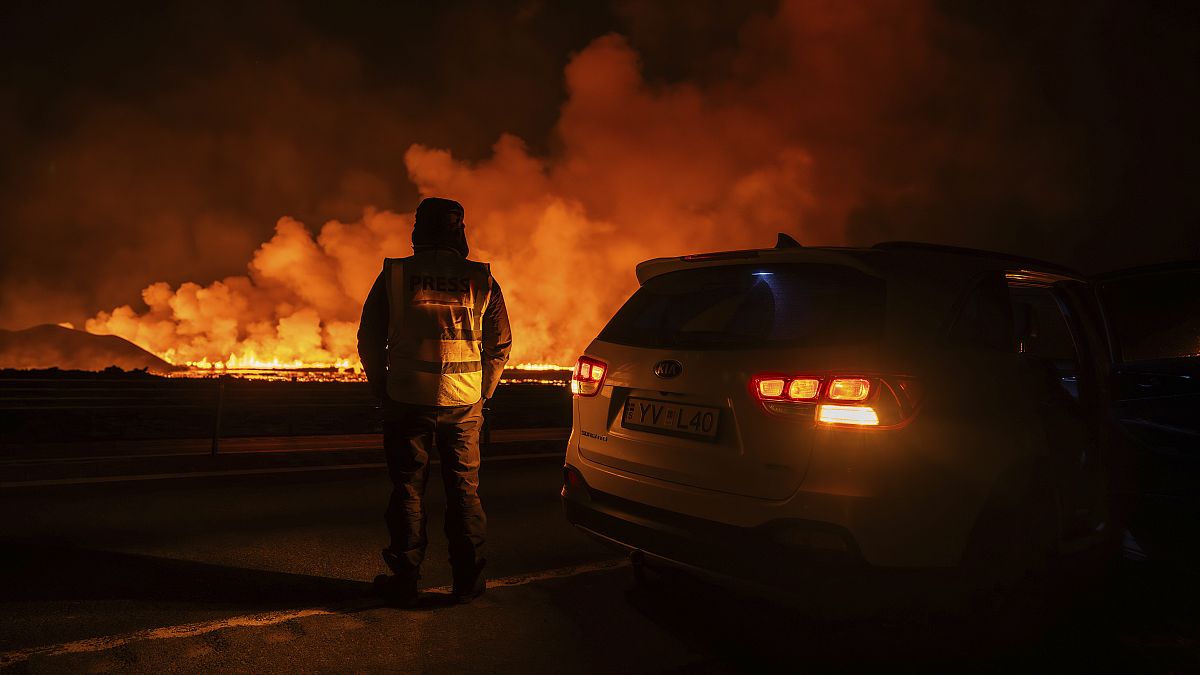A volcano has erupted once again on the Reykjanes Peninsula in south-west Iceland, marking the seventh eruption in the region since December 2023. The eruption, which began near Sundhnúkagígar, created a 3-kilometre fissure, according to the Icelandic Meteorological Office. Despite warnings of gas emissions, particularly in Grindavík, where property damage and relocations have occurred due to frequent eruptions, authorities believe it will impact air traffic but assure the safety of residents in Reykjavik outside the danger zone.
The Reykjanes peninsula, which has remained calm for eight centuries, has experienced numerous eruptions since 2021, with the most recent occurring on 23 August. The ongoing eruptions raise concerns about the long-term impact on this region just 50 kilometres from Reykjavik, prompting the Icelandic Meteorological Office to closely monitor the situation.
The eruption is a reminder of the volatile nature of Iceland’s geology and the potential risks involved in living in close proximity to active volcanic zones. Authorities continue to assess the situation and provide updates to ensure the safety of residents and travellers in the area. As the region grapples with the aftermath of yet another eruption, the focus remains on mitigating any potential risks and protecting the wellbeing of those impacted by the volcanic activity on the Reykjanes Peninsula.
Source
Photo credit www.euronews.com



